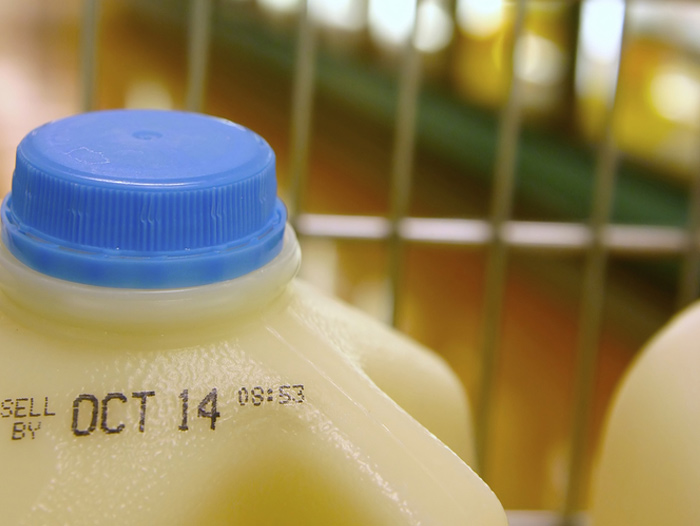New Report Shows Rapid Damage to Milk Nutrients by Light
December 18, 2018 | 3 min to read

WILMINGTON, Del. — Noluma International, LLC, the leader in light protection technology, released new evidence today highlighting the rapid degradation of nutrients in dairy as a result of light exposure. The report finds that damage to nutritional values comes from all light, including common retail and refrigerator lighting. The report reveals rapid loss of key nutrients such as vitamin A, vitamin D and riboflavin in dairy – in some instances up to 51%.1
The U.S.-based company analyzed existing third-party studies, commissioned research and new lab testing to compile a comprehensive report on light degradation of consumer products.
The report, Packaged Foods Should Be Kept in the Dark: Consumers Shouldn’t Be, proves that light of any kind degrades a product’s freshness, nutrition and stability, leading to faster spoiling. It shows that milk can taste or smell worse after just 15 minutes of light exposure.2
“We’ve known for generations that light has a negative impact on food. Similar to how clothing fades in the sun, or skin is burned, our report shows that a variety of packaged goods are negatively impacted by exposure to lighting of all kinds, and far more rapidly than the average consumer realizes,” said Noluma President and CEO Divya Chopra. “Today, consumers expect more from retailers and brands than ever before, and assume their favorite products will stay fresh and contain the nutrients promised on the label, through the expiration date. CPGs have an opportunity to work with Noluma to understand how light is compromising their products, and find solutions to ensure they’re delivering on those promises.”
Noluma debuted state-of-the-art patented technology earlier this year that measures packaging’s ability to protect contents from light damage with more accuracy and efficiency than existing methods. Noluma scientists use a known marker ingredient in the contents of test package, exposing it to intense light that replicates two weeks of exposure in just two hours. This testing allows manufacturers to better understand the vulnerabilities of their packaging and work with Noluma to design packaging that better blocks the degradation of nutrients, taste and efficacy from light exposure.
The extent of damage to the marker correlates with the change in that product’s freshness, nutrients effectiveness, and overall quality. The result is an LPF or light protection factor determined using an algorithm and assigned to each packaging based on the contents it protects. Noluma then uses these learnings to guide the customers in their design of packaging for optimal light protection. Companies who meet the gold standard for reaching the optimal point of light block at which contents are least affected, can add the Noluma™ logo to their packaging, certifying that packaging achieves the best scientifically possible protection from light damage and ensuring that what’s inside has the quality, freshness, nutritional elements, potency and sensory qualities promised to consumers.
About Noluma International, LLC
Noluma International, LLC, started with a vision spearheaded by a group of scientists who believed that science could protect and preserve what matters to people around the world. That light protection vision led to research on how to optimize materials of all kinds to protect against the damaging effects of light. Established in 2018, Noluma is a services and certification company specialized in light protection, and does not sell packaging or packaging materials. For more information, visit Noluma.com.
| 1 Whited, L. J.; Hammond, B. H.; Chapman, K. W.; Boor, K. J. Vitamin A Degradation and Light-Oxidized Flavor Defects in Milk. J. Dairy Sci. 2002, 85 (2), 351–354. |
| 2 Chapman, K. W.; Whited, L. J.; Boor, K. J. Sensory Threshold of Light-Oxidized Flavor Defects in Milk. J. Food Sci. 2002, 67 (7), 2770–2773. |
